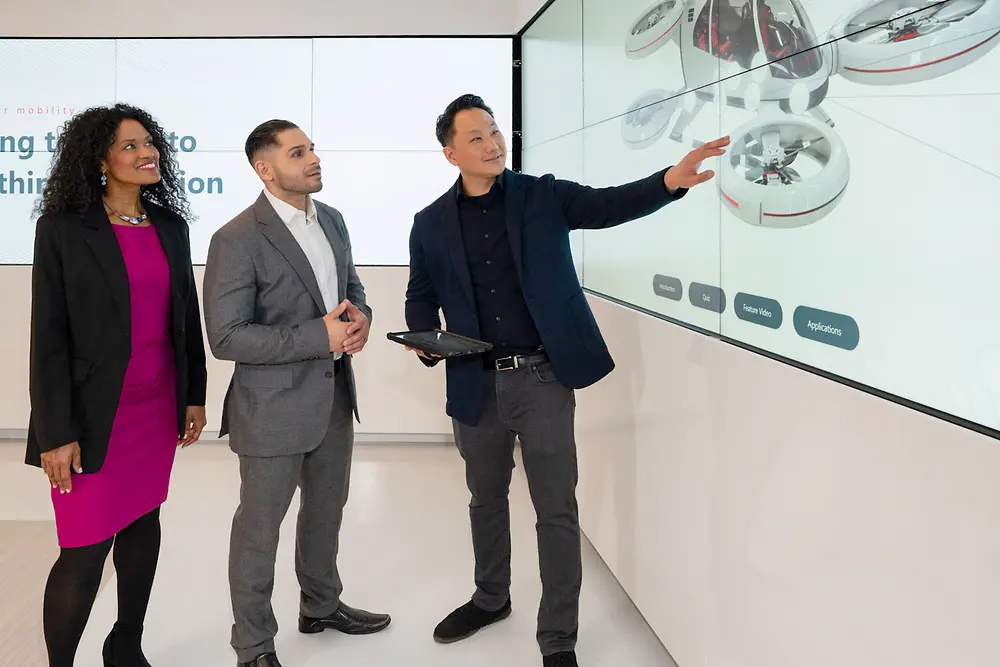I think that companies are most successful when they not only offer budgets or formats, but analyze closely which knowledge is relevant for them and what their employees need − before entering into a dialog with their employees and developing ideas together. This also includes dealing with knowledge within the company. At the moment, knowledge is often managed within individual departments – and may not even be available elsewhere in the organization. This means that it will not only be a question of offering the right formats, but knowledge management and concepts for information transfer will also play a much larger role.
There's no either/or. When people come together in the one place, a special energy arises. We will never be able to replace this virtually. I just think we need to be more conscious about it. It’s a way of sharing and learning with each other. But it is not the best format, for example, for initiating long-term and profound change processes. Because it is too selective for that! My experience has shown that most workshops go very well, the participants get along with each other and we really create great things together. However, most of the time, the problem lies in transferring this into the daily work routine.
Digital platforms give people the opportunity to learn at their own pace in their own time and to experiment with different formats. Because not everyone learns in the same way. Some learn especially well with videos, while others can concentrate better on podcasts. I find that I work well with text − this was an important insight for me. Which format is best also depends on the topic in hand. We are already used to this in our private lives: We read books, google information or watch YouTube videos. So it only makes sense to apply this to organizational training.
Learning does not always have to be moderated. We think far too often in standardized formats such as workshops or seminars – of course, that's where we go and learn. But there are so many other learning opportunities in everyday life. For example, I can go out to dinner with a colleague and we can talk about a topic. Or I may decide to read a text, watch a YouTube video or listen to a podcast every day. Or the team decides to reserve ten minutes of the weekly meeting for small impulse talks in which a colleague shows what he or she has been working on for the last few days. It doesn't always have to be the big workshop − the small learning opportunities are often even more effective.
Small learning opportunities such as topic-related exchanges with colleagues are already beneficial.
When employees do not make use of further training offers, you often hear: "I just can't get around to it on top of my actual work" − what is a company doing wrong in this case?
Learning must not be a feel-good offering. It must be linked to clear goals and be exemplified, especially by direct superiors. Of course, the individual employee must also show commitment. But the company has the responsibility to create the appropriate framework conditions: If employees are expected to learn two hours a week, other tasks must be reduced.














